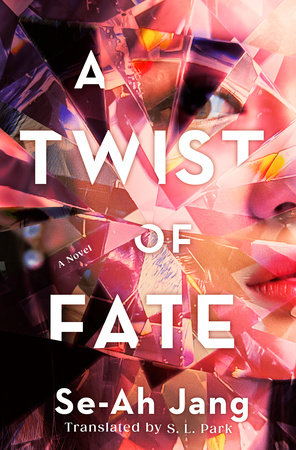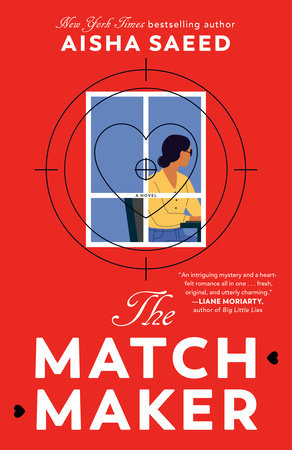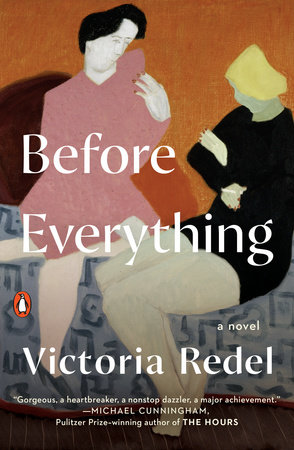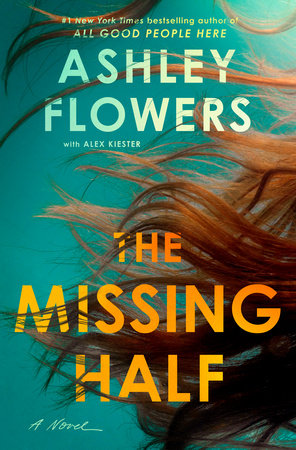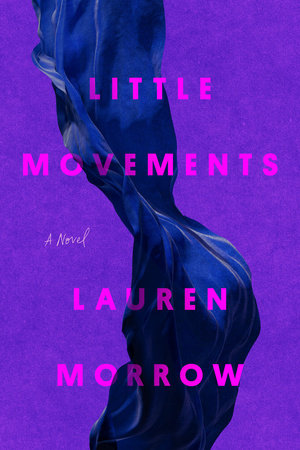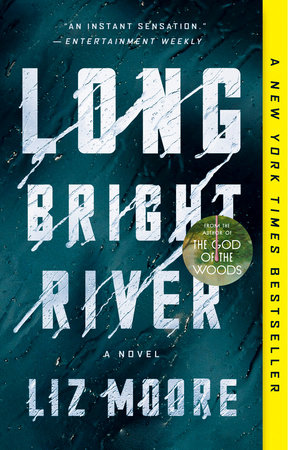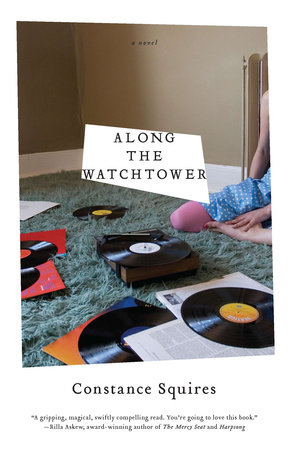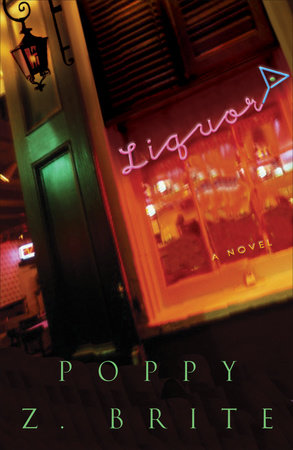A conversition with Miriam Gershow
Random House Reader’s Circle: What initially inspired you to write The Local News?
Miriam Gershow: Before I ever conceived of The Local News, I had completed a short story collection and was looking for an agent. Everyone in my life who knew anything about publishing told me to include the following line in my query letters: “My next project is a novel, which I am currently working on.” Agents, everyone told me, love novels. So I included the line even though it was a lie. Well, not an absolute lie. I figured by the time I actually found an agent— which I imagined might take a while—I’d be at work on my next project and maybe it would be a novel. But to my surprise I ended up finding a great match in the very first agent I queried. The only glitch, of course, was the matter of my imaginary novel. So it was crunch time.
I’ve always been the type of writer whose ideas start small—a single line of dialogue, a vague idea of a character, a rough sketch of a scene. I’ve never been able to write from an outline or envision the full arc of a story before sitting down to write it, and The Local News was no exception. One line popped into my head: “Going missing was the only interesting thing my brother had ever done.” Instantly, I was intrigued: What if you had mixed feelings about a loved one’s disappearance? I’ve always been interested in ambivalence in relationships and the love-hate feelings we often have toward those who are closest to us.
Soon after that line came to me, I wrote the first full scene: Lydia and Kito arguing in the mini-mart about hanging up the Missing Person poster. From there, I found myself naturally exploring Lydia’s world: her parents and Danny and David Nelson and Lola Pepper, to start. I had, to my great relief, made good on my lie. That initial line proved to be one of the rare gifts of my writing life. It hovered in my mind throughout the first draft, creating momentum and propelling me forward while I figured out exactly what this story was about and who these characters were.
RHRC: You have been praised for your unusually authentic depiction of high school. Where did you draw from in creating this picture of teenage life?
MG: Well, even though (unlike Lydia), I skipped my twenty-year high school reunion, a part of me still feels rooted in adolescence. I’m convinced this is true of most people, since high school is such a grueling, seemingly inescapable time in our lives. Its imprint will always be on us, no matter how successful we become. So while I’m a happy, well-adjusted grown-up with a career and a family and a mortgage, some part of me still relates to the particular vulnerability and skinlessness that is the teenage experience. I wasn’t nearly as smart as Lydia in high school, but I definitely shared her sense of alienation. Perhaps I shouldn’t admit this, but I drew upon my own memories and experiences in writing The Local News, even though I never had a missing brother or Ivy League aspirations or friends on the flag team.
Also, I work at a university, and though there’s a difference between an eighteen-year-old college student and a fifteen-yearold in high school, I have daily contact with young people just like Danny—boys with well-honed bravado who have a hard time writing coherent sentences—and quiet, earnest girls like Lydia who have unflattering haircuts and surprise everyone with their insights when they speak. Sitting in classrooms with eighteen- and nineteen-year-olds three days a week keeps me tapped into the squirming personalities and restless thrumming of, if not high school, then at least late adolescence. This helps me keep those voices very much alive in my head.
RHRC: Why did you make the decision to make Lydia smart and Danny dumb? Did you view this as the primary source of their rift?
MG: A little bit of background: In graduate school, when I was still figuring out how to write stories, Charles Baxter visited my MFA program and read one of my pieces. I had what bordered on sycophantic love for Charles Baxter’s work, so I handed him what I considered to be my very best story, about a widower who is obsessed with visiting hospital patients who have survived failed suicide attempts. I’d been told for years that I wrote “loveable losers,” which I considered a compliment. I waited for Baxter to heap on the praise, to instantly shepherd my work into publication, and to profess his equally sycophantic love for me. Instead what he told me was this: My protagonist was an overdetermined loser. It was obvious from the first page that everything he set out to do would be a failure, so the story lacked any real momentum and tension.
It was a startling, humbling, and semiheartbreaking moment— one of those moments in learning how to write when you realize a critique is completely correct and your own opinion is upended. Ever since then, my fear of the overdetermined loser has hovered over my stories, because I tend to pick outsiders and underdogs as my protagonists. So when I was writing that very first scene in the mini-mart and Lydia presented herself to me as the kind of precociously smart character who spouted off facts about the Oslo Accords and the conflict over Kashmir, I seized on the idea. Her intelligence became a defining characteristic. I knew it would elevate her from being simply one more mopey high school loser. And while she often used her book smarts as a mask for her growing internal panic and confusion, it also kept her from devolving into a simpering wallflower. Even as everything else fell apart, Lydia was still smart. This provided a ray of hope. As harrowing as her adolescent circumstances were, her intelligence offered the possibility of a better future.
And I’m not sure I see Danny as dumb. In many ways, he was a smart, savvy kid, able to charm nearly everyone around him and easily negotiate the tricky social scene of high school. At some point early in the first draft, I feared that he was coming across as a onedimensional bully, but I knew his aggression had to be fed by some kind of insecurity. To me, his learning disabilities didn’t make him a dumb jock—they made him vulnerable and desperate to preserve his image as a golden boy. Popularity was his mask, just like Lydia’s intelligence was hers.
I certainly think this is one source of the rift between Lydia and Danny. But I don’t think there’s any one reason why siblings stop getting along or why they fight or why one is embarrassed by the other. It’s a complicated relationship, and the contrast between Danny’s learning disabilities and Lydia’s fierce intelligence was just one of their relationship’s complications. The high school social hierarchy was another one. So was the disparate attention from their parents. So were the normal growing pains of adolescence.
RHRC: You describe Lydia’s parents as “drifters.” Do you have sympathy for them?
MG: Absolutely I have sympathy for them. One of the most interesting questions that came to me in writing a missing-person story was: What would happen to a family if you suddenly remove one of its key players? Every family exists within its own weird universe; there are norms and dynamics that would seem strange to an outsider. Danny was the magnet of the Pasternak family. He was—for all his other failings—the easier kid for this particular set of parents. I don’t think that makes Lydia’s parents evil. I think that makes them human. Lydia was the far more independent child, even long before Danny was gone. She just wasn’t as close to her parents as her brother was. So when he vanished, all three naturally drifted from one another. Lydia doesn’t go to her parents for help or support. And they view her—often inaccurately—as the child who can take care of herself. They are also consumed in their own almost unfathomable grief.
I know a number of readers who have wanted to shake Lydia’s parents by the shoulders, to urge them to reach out to Lydia, to recognize her grief and offer more love and support. I understand this. But also I think they did the best they could. They made small efforts—Mom brings Lydia and David the root beer floats, Dad reassures Lydia after the near accident, they both bring Lydia to the cemetery. But they are limited in their capacity. The family after Danny disappeared is the same family it was before he disappeared; these three people don’t quite know what to do with one another or how to truly be with one another. When Danny was there, he served as a big, loud distraction to this dynamic. All eyes were on him.
RHRC: Throughout the book, we see the community’s response to Danny’s disappearance. Everyone from Min Mathers to the head of the PTA to Kirk Donovan to Melissa Anne has “laid claim to him,” as Lydia puts it. Why was that response important to the story?
MG: I find the public grief that accompanies such tragedies genuinely fascinating. There’s something both authentic and contrived about it. I think about this when I watch news coverage of school shootings: Even people not directly affected by the shootings—who didn’t know the shooter or the victims—sob to reporters. I don’t think that display of emotion is fake. These people usually appear to be genuinely distraught. But I wonder why. Sometimes I think that a universal vein of grief runs through all of us—most of us have directly experienced some kind of loss and the few who haven’t still have to face their own mortality—and we use these community tragedies to vent some of that universal grief.
So I was intrigued by the community response to Danny’s disappearance. Part of the response was opportunistic, like the yellow ribbons fashioned into bracelets and hair bands. But I also think this town was truly bereft, even those people who barely knew Danny. I liked the muddle of the situation; Lydia certainly viewed the community loss as less authentic than her own. But was it? I think the nature of public grief is more complicated than that.
RHRC: Do you think that Danny loved Lydia and that Lydia loved Danny?
MG: Yes and yes. Definitely. As much as I loved that initial line— “Going missing was the only interesting thing my brother had ever done”—I realized early on in my writing that it was a lie that Lydia told herself. The part of her that was crushed by Danny’s cruelty and rejection certainly wanted to believe it, but the part of her that deeply loved her brother knew it wasn’t true. Look at the Bridge Game. Look at Miggle Man. Beneath their adolescent estrangement was a childhood love that was never entirely extinguished.
The same goes for Danny. Yes, he grew into a brutish teenager. Teenagers can be stupid and thoughtless, especially those who are preoccupied with their status as Danny was. But he was also capable of thoughtfulness; when Lydia is in the factory with Bayard and Lola, she remembers how Danny’s occasional kindnesses turned her into the crazy rat. I think those occasional kindnesses signal that Danny never completely lost affection for Lydia. He had a hard time communicating that affection in a consistent way, but someone like Danny would have struggled with having a sister who was so naturally intelligent and who faced so few of the same challenges as he did. So I think there was real cause for resentment on his end. And certainly Lydia was justified in her resentment of Danny. But I don’t think either of them lacked an underlying love for the other. In the end, at the reunion, Lydia wonders what it would have been like if they had survived into adulthood together. I think there remains the very real possibility that they would have outgrown their adolescent chafing and regained some of the intimacy they shared as children.






